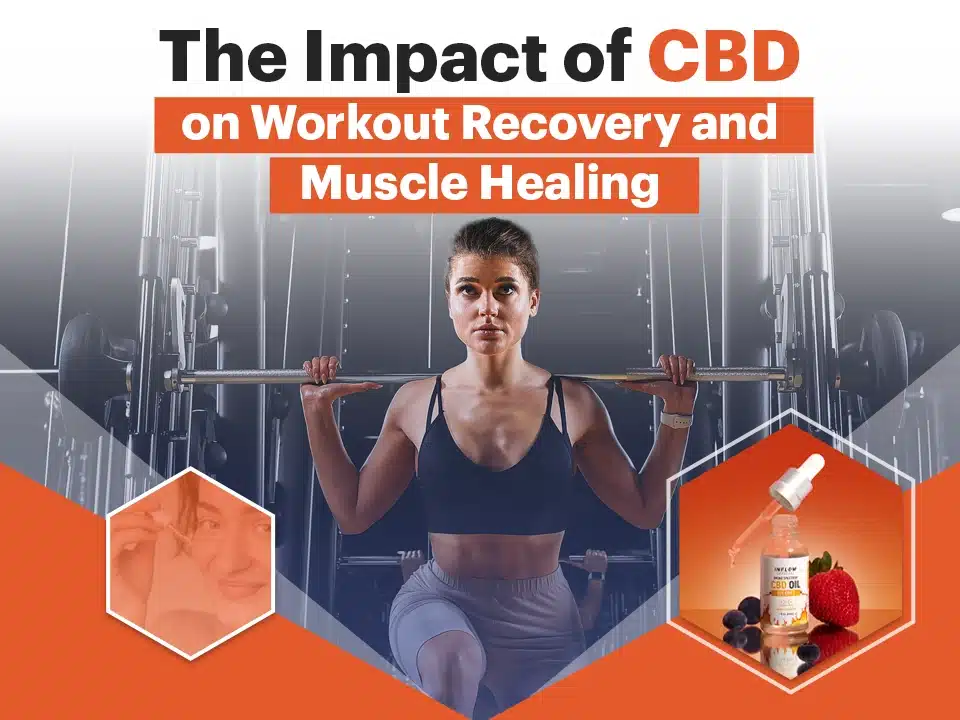
Recently, CBD (Cannabidiol) has gained significant traction in sports and fitness, becoming a staple for athletes and active individuals seeking to enhance their recovery processes. Celebrated for its impressive anti-inflammatory properties and its capacity to facilitate recovery, CBD, derived from the cannabis plant, stands out as a natural alternative to traditional pharmaceuticals. Unlike its psychoactive counterpart, THC (tetrahydrocannabinol), CBD does not induce a high, making it a suitable option for those looking to reduce post-workout soreness, accelerate muscle recovery, and manage exercise-induced inflammation effectively.
The burgeoning popularity of CBD among the athletic community is backed by a growing body of scientific research that underscores its potential benefits in aiding recovery and improving overall sports performance. This natural compound interacts with the body’s endocannabinoid system, a complex receptor network that regulates various physiological processes, including pain, inflammation, and metabolic regulation. By modulating this system, CBD can help alleviate muscle soreness and reduce inflammation, thus enhancing the body’s ability to recover from intense physical activity.
This blog aims to explore CBD’s role in sports recovery, examining the scientific mechanisms underpinning its effectiveness and providing insights into how athletes can integrate this supplement into their recovery routines for optimal benefits. Whether you’re a professional athlete or a fitness enthusiast, understanding how CBD can be leveraged to enhance muscle recovery and support overall wellness can be a game-changer in your athletic performance and recovery strategy.
CBD Basics: What Athletes Need to Know

CBD, or cannabidiol, has rapidly become a cornerstone in sports medicine and athletic recovery, thanks to its profound interaction with the body’s endocannabinoid system (ECS). The ECS is integral to maintaining body balance, helping regulate inflammation, pain, and overall homeostasis. For athletes, leveraging CBD’s potential could mean significantly faster recovery times, diminished muscle soreness, and enhanced athletic performance. Here’s a deeper look at how CBD can be integrated into an athlete’s daily regimen to harness these benefits:
Pain Management
- Direct Relief: CBD is renowned for its analgesic properties, which can be crucial for athletes dealing with the constant wear and tear associated with intense physical training. By interacting with the ECS, CBD helps to dampen the transmission of pain signals to the brain, providing relief without the side effects commonly associated with over-the-counter pain medications.
- Long-Term Benefits: Regular use of CBD may help manage acute pain and chronic aches from long-term sports participation. This makes CBD a sustainable choice for ongoing, daily pain management.
Inflammation Reduction
- Modulating Bodily Responses: CBD’s ability to modulate the inflammatory response is especially beneficial post-exercise. Vigorous workouts can lead to acute inflammation, which, while part of the body’s natural healing process, often results in pain and swelling. CBD helps regulate these inflammatory responses, promoting quicker recovery and reducing the likelihood of over-inflammation that can lead to injury.
- Preventive Care: Regular CBD use might also help preemptively manage inflammation, which can be particularly beneficial during periods of intense training or competition.
Stress and Anxiety Reduction
- Enhancing Mental Well-being: The mental aspect of sports is just as crucial as the physical. CBD has been shown to possess anxiolytic properties, helping to reduce anxiety and stress levels. This can lead to better focus and more effective training sessions, as athletes are more present and less distracted by anxiety or stress.
- Improving Sleep and Recovery: CBD can reduce anxiety and improve sleep quality, a key component of effective recovery. Better sleep leads to improved mood, better performance, and enhanced cognitive function, all vital for competitive athletes.
Integrating CBD into Athletic Routines
- Tailored Dosage and Formulation: Depending on their specific needs, athletes can choose from various CBD products, such as tinctures, capsules, or topicals. Each form has its advantages, depending on the required relief and the timing of consumption relative to exercise routines.
- Consultation with Professionals: Athletes considering CBD should consult with sports health professionals to tailor a CBD regimen that best fits their training schedules and recovery needs. This ensures optimal integration of CBD into their existing wellness protocols, enhancing benefits while maintaining compliance with sports regulations.
Understanding and utilizing CBD’s capabilities in managing pain, inflammation, and stress can fundamentally alter an athlete’s recovery and overall performance. By fitting CBD into their broader health and wellness routines, athletes can enhance their physical recovery and gain a mental edge, culminating in improved overall athletic performance.
Choosing the Right CBD Product for Fitness
When it comes to enhancing workout recovery with CBD, choosing the right type of product is crucial for achieving optimal results. The form of CBD you select should align with your specific recovery needs, your lifestyle, and how quickly you need the effects to kick in. Here’s a closer look at the various CBD formulations available and how they can be integrated into a fitness routine effectively:
Topicals: Targeted Relief for Muscles and Joints
- Direct Application: CBD-infused topicals, such as creams, gels, and balms, are applied directly to the skin over sore or injured areas. These products are particularly effective for localized treatment of inflammation and pain, making them ideal for athletes dealing with specific muscle groups or joint pain.
- Benefits: Topicals are advantageous because they can provide concentrated relief exactly where it’s needed without affecting the rest of the body. This makes them perfect for use immediately after a workout, helping to reduce inflammation and alleviate pain in areas like the shoulders, knees, or back.
Oils and Tinctures: Systemic Relief and Overall Wellness
- Sublingual Administration: CBD oils and tinctures are typically administered sublingually (under the tongue), allowing fast absorption into the bloodstream. This method is effective for more generalized recovery needs and offers extensive benefits beyond localized pain relief.
- Versatility: These forms of CBD can be useful both pre and post-workout. Taken before exercising, they may help enhance focus and reduce pre-performance anxiety. Post-workout, they aid in overall recovery and inflammation reduction across the body.
Edibles and Capsules: Consistency and Convenience
- Ease of Use: CBD edibles and capsules offer a discreet, convenient, and easy way to maintain consistent CBD levels throughout the day. This form is particularly suitable for busy people who need a simple, no-fuss approach to CBD supplementation.
- Controlled Dosage: One of the main benefits of edibles and capsules is their precise control over dosage. Each piece or capsule delivers a specific amount of CBD, which helps maintain a consistent regimen necessary for ongoing recovery and wellness management.
Choosing Based on Your Needs
- Consider Your Activity Level: The choice between topicals, oils, tinctures, edibles, and capsules may also depend on your level of physical activity and the intensity of your workouts. For instance, endurance athletes might prefer the lasting effects of edibles or capsules, while weightlifters or sprinters might benefit more from the immediate relief provided by topicals.
- Trial and Adaptation: It’s often beneficial to try different forms of CBD to see which one works best for your specific fitness goals and recovery needs. Additionally, you may find that combining different forms (such as topicals for immediate relief and tinctures for ongoing support) provides the most comprehensive benefits.
By carefully selecting the appropriate CBD product and form, you can significantly enhance your fitness regimen, improve recovery times, and maintain a higher overall level of performance. Remember, the key to successful CBD use lies in choosing high-quality products from reputable sources and tailoring your CBD use to fit your individual health and fitness needs.
Integrating CBD Into Your Recovery Routine

Incorporating CBD into your workout recovery routine can significantly enhance healing and overall fitness results. Here are some effective strategies for integrating CBD into your post-workout regimen:
Post-Workout Recovery
- Topical Application: Immediately after exercise, apply CBD-infused topicals directly to sore or inflamed areas of the body. This direct application helps target specific muscles or joints that need relief, facilitating quicker recovery by reducing local inflammation and pain.
- Systemic Relief: For more generalized recovery, consuming CBD as edibles or tinctures post-workout can help address systemic inflammation and overall bodily recovery. These forms are also beneficial for calming the nervous system and promoting better sleep, which is crucial for muscle repair.
Consistent Use
- Routine Integration: Incorporate CBD into your daily routine to maintain a consistent level of cannabinoids in your system, which can improve their effectiveness in managing pain and inflammation.
- Long-term Benefits: Regular use of CBD, especially with a consistent exercise regimen, can lead to long-term benefits such as improved joint mobility, reduced chronic inflammation, and enhanced muscle recovery.
Complementary Practices
- Holistic Approach: Combine CBD with other recovery methods to create a comprehensive recovery plan. For instance, following up your CBD regimen with stretching can help enhance flexibility and reduce muscle tension.
- Hydration and Nutrition: Ensure you stay hydrated and consume a balanced diet of anti-inflammatory foods. Integrating CBD into a lifestyle that includes adequate water intake and nutritional support can amplify the compound’s beneficial effects on recovery.
Potential Side Effects and Considerations
While the therapeutic potential of CBD is significant, it’s crucial to approach its use with mindfulness of potential side effects and individual responses:
Side Effects
- Common Reactions: Some users might experience mild side effects from CBD, such as dry mouth, slight drowsiness, or changes in appetite. These are generally well-tolerated and can often be mitigated by adjusting the dosage.
- Digestive Sensitivity: Particularly with oral forms of CBD, some individuals may experience digestive upset or mild nausea. Starting with a small dose can help minimize these effects.
Dosage and Response
- Gradual Increase: Begin with a low dose of CBD to see how your body reacts, particularly if you are new to using it. Gradually increasing the dose allows you to find the optimal amount that provides relief without unwanted side effects.
- Personalized Approach: Because body chemistry and conditions vary widely, what works for one person may not work for another. Monitor how your body responds and adjust your CBD intake accordingly.
Consulting Healthcare Professionals
- Medical Guidance: Before starting any new supplement regimen, particularly one involving CBD, consult with a healthcare provider. This is especially important if you have pre-existing health conditions or are taking other medications, as CBD can interact with certain drugs.
Integrating CBD into your recovery routine requires a thoughtful approach that considers the potential benefits and nuances of how your body responds to CBD. By tailoring your usage to fit your specific recovery needs and lifestyle, and combining it with other health-promoting practices, you can maximize the benefits of CBD for enhanced workout recovery and overall well-being.
Read More: How CBD Can Enhance Your Daily Wellness Routine?
Legal and Doping Considerations
When incorporating CBD into an athletic regimen, athletes need to consider not only the potential health benefits but also the legal implications and doping regulations that may affect their ability to use these products legally and ethically.
Understanding the Legal Landscape
- Variable Regulations: The legal status of CBD can vary significantly from one region to another and even from one sports authority to another. In some areas, CBD derived from hemp with less than 0.3% THC is completely legal, while in others, any cannabis-derived product may face strict regulations.
- Continuously Changing Laws: The legal landscape around CBD is continually evolving, with many countries and states updating their regulations as more becomes known about CBD’s benefits and safety. Athletes are advised to stay informed about the latest laws in their respective countries and the specific rules of the regions in which they compete.
Compliance with Sports Authorities
- Doping Regulations: CBD has been removed from the World Anti-Doping Agency’s (WADA) list of prohibited substances, which is a positive step for athletes. However, THC remains a banned substance. Since full-spectrum CBD products may contain trace amounts of THC, there is a risk of testing positive for THC, which can lead to sanctions.
- Choosing Products Wisely: To mitigate the risk of inadvertently consuming THC, athletes should opt for broad-spectrum CBD products or CBD isolates, which are refined to contain no THC. These products provide the benefits of CBD without the risk of THC ingestion.
Importance of Third-Party Testing
- Product Safety and Purity: Athletes should ensure that any CBD product they use is rigorously third-party tested. These tests verify the cannabinoid content, ensuring that no THC is present in products labelled as THC-free and that the CBD content matches advertised.
- Avoiding Contaminants: Third-party testing also checks for contaminants such as heavy metals, pesticides, and molds, which can harm health. This is particularly crucial for athletes, whose physical health and performance are paramount.
Educating Oneself and Team Management
- Informed Decisions: Athletes should educate themselves about the nuances of CBD use in sports, understanding both the therapeutic aspects and the regulatory framework. Consulting with healthcare providers, sports nutritionists, and legal advisors knowledgeable about CBD can provide valuable insights.
- Communication with Team Officials: Athletes should also discuss their CBD use with team management and medical staff to ensure that it does not conflict with team policies or broader league regulations.
For athletes, the decision to incorporate CBD into their wellness and recovery routines must be approached with a comprehensive understanding of both the potential benefits and the complex legal and doping landscapes. By choosing legally compliant, third-party-tested products and staying informed about the latest in sports regulations, athletes can harness the benefits of CBD while minimizing risks to their careers and reputations.
Conclusion: CBD’s Role in Enhancing Athletic Performance
CBD’s anti-inflammatory and pain-relieving properties support its impact on workout recovery and muscle healing, making it a valuable addition to any athlete’s regimen. By understanding how to use CBD effectively and choosing the right products, athletes can leverage CBD to enhance their recovery and, ultimately, their performance. As research continues to evolve, the role of CBD in sports and fitness is expected to grow, providing athletes with a powerful tool to support their training and recovery efforts.



